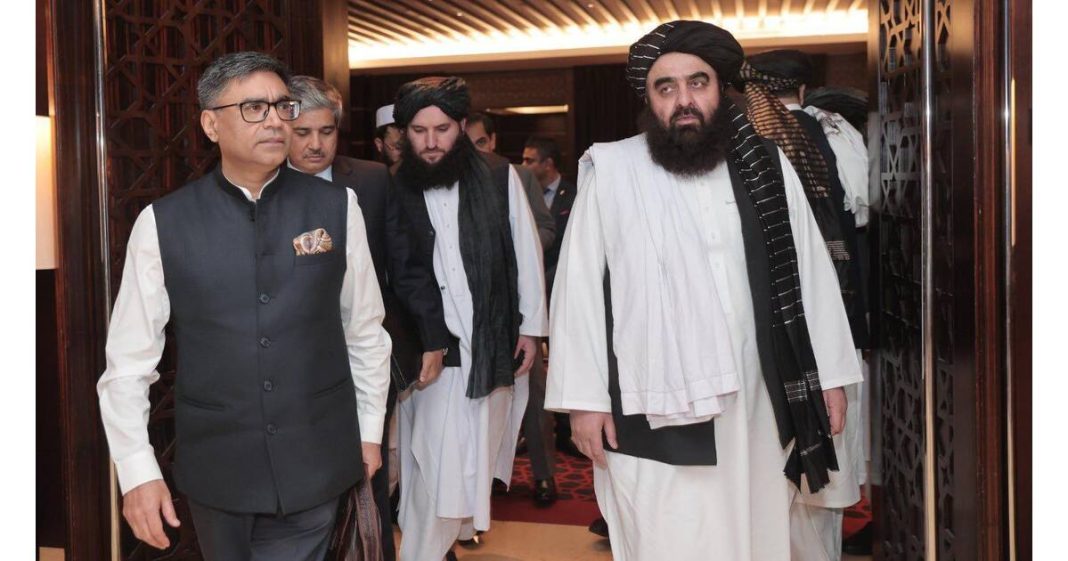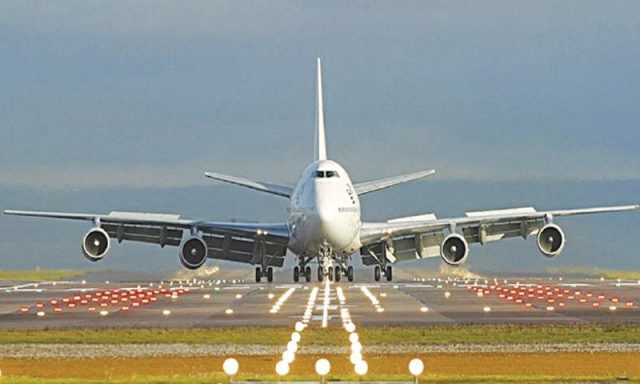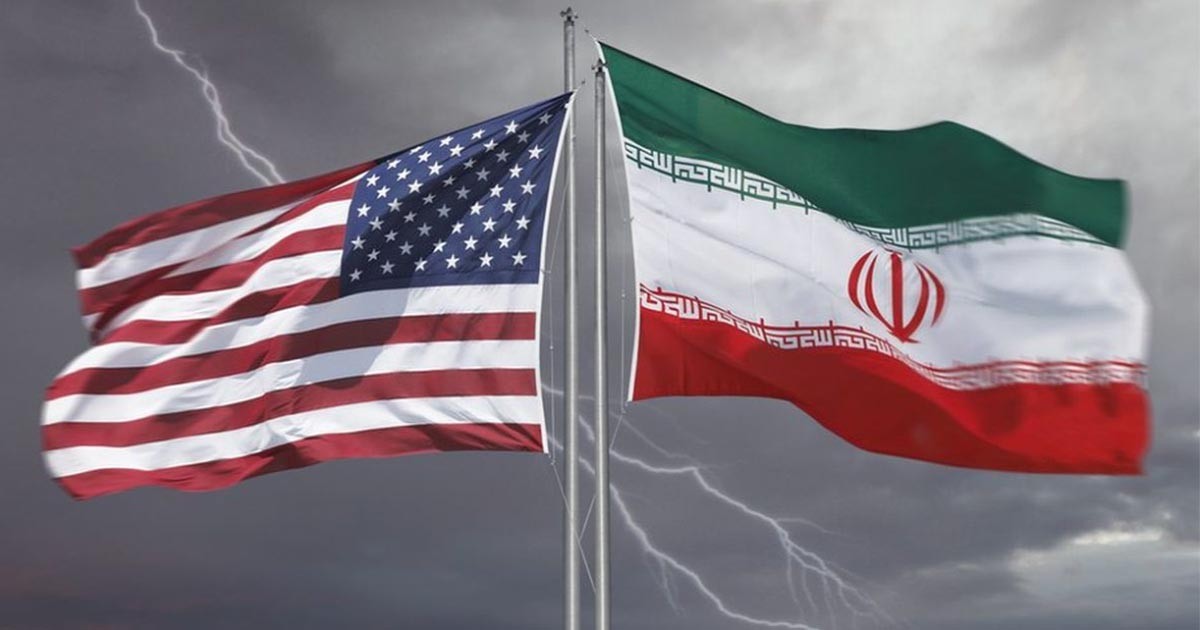Afghanistan’s Taliban foreign minister left for New Delhi on Wednesday, his ministry said, in what would be the first visit to India by a Taliban leader since the group seized power in 2021.
The trip highlights Taliban efforts to expand engagement with regional powers in a quest for economic ties and eventual diplomatic recognition. So far, Russia is the only country to have formally recognised the Taliban administration.
Afghan Foreign Minister Amir Khan Muttaqi will hold talks with Indian Foreign Minister Subrahmanyam Jaishankar and other officials on political, economic, and trade issues, the Afghan foreign ministry added.
Historically, India and Afghanistan had friendly relations, but New Delhi shut its embassy in Kabul after the 2021 U.S. withdrawal from the war-shattered country and the return to power of the Taliban.
India opened a small mission a year later to facilitate trade, medical support, and humanitarian aid. New Delhi does not officially recognise the Taliban government but has taken tentative steps to thaw ties with meetings and talks between senior officials in their respective foreign ministries.
Muttaqi’s trip was made possible after the U.N. Security Council Committee temporarily lifted a travel ban on him to allow diplomatic engagements abroad, India’s foreign ministry said last week.
Discussions during Muttaqi’s trip will centre on bilateral cooperation, trade exchanges, exports of dry fruit, facilities in the health sector, consular services, and various ports, the Afghan Taliban foreign ministry said last week.
On Tuesday, Muttaqi attended a regional meeting in Moscow where Afghanistan’s neighbours, including India, Pakistan, Iran, China, and several Central Asian countries, issued a joint statement opposing the deployment of foreign military infrastructure in the region.
The statement was regarded as a signal of opposition to U.S. President Donald Trump’s stated objective to retake control of the Bagram military base near Kabul.
India’s Pragmatic Shift Toward Taliban
Analysts believe India is moving an inch closer to recognizing the Taliban government in Afghanistan and call it a pragmatic move, given India’s interest in Afghanistan. However, they warn that India must withhold its full recognition of the Taliban government until the United Nations decides to do so.
The Taliban’s moral compass is upside down. They see Pakistan’s alliance with the US against terror networks in Afghanistan “Haram.” But when they themselves team up with Hindutva India to use terror groups against Pakistan and the West, it becomes “Halal.”
Peak hypocrisy! https://t.co/KnAVMFq1fZ
— Shaiq Uddin (@shaiquddin) October 9, 2025
Talking to various international publications, Former Ambassador to Afghanistan Gautam Mukhopadhaya says the visit of Mr. Muttaki reflects a convergence of security interests at the expense of certain values and internal security concerns that held the relationship in check even as the Taliban seeks to balance ties with China, Pakistan, and Russia.
We can expect an incremental increase in visas, scholarships, humanitarian assistance, trade development, intelligence cooperation, and diplomatic ties.
Former Foreign Minister of Afghanistan Rangin Daftar Sapanta has warned India and Pakistan that the visit shouldn’t be viewed in terms of their rivalries. He added that India’s current policy towards Afghanistan is mainly dictated by its anti-Pakistan approach. Both governments are looking for proxies, and this is not about good neighborliness or peace in the region.
Indian-Taliban relations also seem to be paralleling the souring of ties between Pakistan and the Taliban. Islamabad has repeatedly protested with the Taliban regime over the cross-border terrorism, and has even launched airstrikes on the Afghan territory.
By engaging India, the Taliban seeks to expand its diplomatic footprint beyond Pakistan and China. Indian diplomat Gautam Mukhopadhya believes that the engagement of the Taliban with India is a message to Islamabad’s claim of indispensability in Afghan affairs. The Taliban is showing independence from Pakistan and leveraging its traditional people-to-people ties.
India now has a chance to re-establish a presence in Kabul by increasing development efforts, capacity building, technical assistance, and providing visas for medical and educational purposes.
The visit has implications for India’s relations with key powers as well, notably the US, Russia, Iran, and China, all of whom maintain varying degrees of contact with the Taliban. Indian thinkers also believe that India will continue to engage with Afghanistan to ensure that the Pakistan-Afghanistan relationship does not revert to what it was in the 1980s, as well as China is also trying to bring Afghanistan and Pakistan together.
Afghanistan has been out to several countries primarily to improve economic and diplomatic relations. Taliban’s increased engagement with India and the deteriorating relations with Pakistan have made New Delhi an important partner.
India’s Renewed Engagement and Humanitarian Outreach
Discussions during the visit of Afghanistan’s Foreign Minister will focus on upgrading diplomatic relations to a full embassy and expanding consular services between Afghanistan and India, and the discussion will also include the upgradation of the Indian embassy in Kabul.
India is now expanding its cautious outreach to the Afghan government, after many countries have established diplomatic channels with the Taliban government, including the US as well. However, New Delhi had shut its embassy in Kabul after the withdrawal from the war and shut its country in return to the power of the Taliban.
Read more: Pakistan’s Top Military Official Visits Bangladesh: A New Chapter in Bilateral Defence Ties
In June 2022, less than a year after the Taliban takeover of Kabul, India sent a technical team to the Afghan capital to coordinate the delivery of humanitarian assistance and to explore how New Delhi could support the Afghan people.
Afghan Govt Spokesperson: Afghan Minister of Foreign Affairs will hold discussions with Indian counterpart and other officials on various political, economic, trade issues as well as on the development of relations between Afghanistan and the region. 🇦🇫🇮🇳pic.twitter.com/nCXwml0a4d
— Aditya Raj Kaul (@AdityaRajKaul) October 8, 2025
The Taliban have also been persuading India to resume its infrastructure projects and welcome investments between the two countries. After the recent earthquake on August 31, India was one of the first countries to offer aid.
It also facilitated this through the Chawahar port, offering food items, water purifiers, tents, and essential medicines, thus bolstering its support to the Afghan people.
India sees cooperation with the Taliban, however, as necessary to deal with terrorism and security threats coming from Afghanistan. However, India is also being faced with the challenge of balancing its political talks. Many analysts expect India to use its influence on the Taliban to ease restrictions on women and minorities as well.
However, it is unclear how much leverage India truly has to make the Taliban change their behaviour to ensure that they will support India’s long-term interests.
Additional Inputs from GVS South Asia Desk














